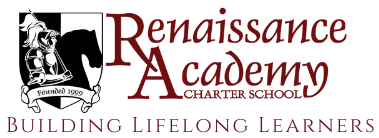
Charter schools are public schools that operate independently of school districts. They receive funding from a variety of sources, including:
- Tuition payments from school districts: When a student enrolls in a charter school, their home school district is required to pay a tuition rate to the school. The amount of the tuition rate is based on the district's per-pupil spending. This is known as the PDE 363 Rate.
- Federal grants: Charter schools may be eligible for federal grants, such as those from the U.S. Department of Education. These grants can be used to support a variety of programs and initiatives, such as teacher professional development, curriculum development, and school improvement.
- Private donations: Charter schools may also receive private donations from individuals, businesses, and foundations. These donations can be used to support a variety of needs, such as financial aid for students, technology upgrades, and extracurricular activities.
- Fundraising: Charter schools may also raise funds through fundraising activities, such as bake sales and car washes. These funds can be used to support a variety of needs, such as field trips, teacher supplies, and school improvement projects.
In addition to these sources of funding, charter schools may also receive funding from other state and local programs. For example, some charter schools may receive funding from the state to provide special education services.
The amount of funding that a charter school receives can vary depending on a number of factors, including the school's location, the type of students it serves, and its academic performance.
How Does Charter School Funding Differ from Traditional Public School Funding?
The main difference between charter school funding and traditional public school funding is that charter schools receive their funding directly from the state, while traditional public schools receive their funding from local school districts. This means that charter schools are not subject to the same level of local control as traditional public schools.
Another difference is that charter schools are not required to provide the same level of services as traditional public schools. For example, charter schools are not required to offer transportation or extracurricular activities.
What Are the Pros and Cons of Charter School Funding?
There are both pros and cons to charter school funding.
Pros:
- Charter schools have more flexibility in how they use their funding. This can allow them to be more innovative and responsive to the needs of their students. For example, a charter school might use its funding to hire teachers with specialized skills, provide smaller class sizes, or offer more enrichment programs.
- Charter schools are not subject to the same level of bureaucracy as traditional public schools. This can make them more efficient and effective. Charter schools are not required to follow the same rules and regulations as traditional public schools, which can save them time and money.
- Charter schools are often held to higher standards of academic achievement than traditional public schools. This is because charter schools are typically required to have annual performance reviews. If a charter school does not meet its performance goals, it can be closed or have its funding revoked.
Cons:
- Charter schools may have less funding than traditional public schools. This is because charter schools do not receive funding from local property taxes. As a result, they may have to rely more on tuition payments and fundraising.
- Charter schools may be more selective than traditional public schools. This is because charter schools typically have more applicants than they have spots available. As a result, they may have to use entrance exams or other criteria to select students.
- Charter schools may not be held to the same level of accountability as traditional public schools. This is because charter schools are not subject to the same state and federal regulations as traditional public schools. As a result, it can be more difficult to ensure that they are providing a high-quality education.
Overall, there is no clear consensus on whether charter school funding is a good or bad thing. There are both pros and cons to consider, and the best approach may vary depending on the specific circumstances.
But one thing is for sure: Charter schools offer a valuable option for parents who are looking for a different kind of educational experience for their children. Charter schools can provide a more innovative, personalized, and rigorous education than traditional public schools. And they can do so at a lower cost.
If you are considering sending your child to a charter school, I encourage you to do your research and find a school that is a good fit for your child's needs. There are many great charter schools out there, and they can be a great way to give your child a brighter future.
